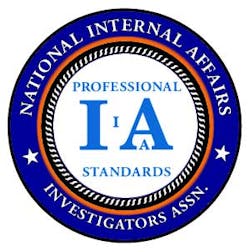For many years, federal, state, and local governments have tried to cut costs by using private contractors to complete duties normally handled by governmental employees. One of these commonly outsourced services is prison management. The rationale is that they could complete the work at a cheaper cost. We as law enforcement see this as it is a high-risk, high-liability nightmare. We have been correct in our fears.
Someone has to oversee the services that are provided. This oversight task often falls on the police. Several problems immediately arise. How do we do it? Governmental internal investigations have rules and regulations that we must follow, laid out not only by policy and procedure, but by the court system. Internal affairs investigators know how to complete these investigations. We have the luxury of being able to compel a statement from governmental employees. When the incident involves a criminal investigation, we also have Garrity, where we can give immunity in order to compel a truthful statement from employees. We had it made until now. What do you do, or can you do with a privatized company? The complaints must be investigated. Private companies cannot compel a statement, so how do we get to the truth if we are tasked with the investigation?
The Supreme Court has given us direction in the form of case law. In Daryl Richardson and John Walker v. Ronnie Lee McKnight, McKnight brought a federal lawsuit against the company and two guards that were alleged to have injured him while putting him in restraints. The defendants were employed by a privately held company. The trial court ruled that the guards were not entitled to qualified immunity because; they were employed by a private company and not the government. The case was appealed to the United States Court of Appeals for the Sixth Circuit and affirmed. The case was appealed to the United States Supreme Court, which also affirmed the question as to qualified immunity. The court ruled that private security guards do not have the right to qualified immunity.
The court looked at Wyatt v. Cole, 504 U.S. 158, in which the Supreme Court ruled that a 1983 action deters persons acting in place of the states from depriving civilians from their federal rights, and in doing so can impose liability on private individuals. Secondly, there is a distinction between immunity from suit that absolves the persons from liability, whether the person was right or wrong in their actions. Third, history may determine where persons are entitled to protection from a suit. Fourth, Wyatt was decided with a narrow question before the court and not applicable to all individuals.
Historically, there is not a tradition of giving immunity to privately employed prison guards. However, government-employed guards are public employees. The process of corrections is not a public process. The court looked back to the 19th century and discovered that corrections is a primarily governmental duty.
Immunity is not extended to private prison guards, just as the performance of a governmental job would not entitle the private person immunity, particularly one who does not do so with any government supervision. The most important immunity concern is protecting the public from governmental officials' overzealousness. Policies and procedures are in place to curtail problems. It allows employees to do their job with oversight and the ever-present confidence that the system is being monitored.
This is not as likely in the public sector. If guards become aggressive, the concerns are with cost increases, which in turn result in replacement with a company more in tune with the liability of the contract. Officers will be better trained and more effective. Privately held companies must maintain insurance coverage and their contracts are periodically up for review and renewal. Looking at this aspect, the court realized that private companies differ from government organizations in the sanctions that may be imposed against them.
Civilian employees are different from governmental employees in several ways. Civilian employees answer to a privately held company. Government employees are responsible to and answer to the citizens. Governmental employees are governed by civil service rules that not only provide security to the employee, but limit the government's power to reward or punish the employee.
Privatization meets the immunity-related need to recruit candidates by the usage of insurance coverage that will protect the employee and company. This encourages candidates for employment to work for the companies. Private companies are released from the requirement of civil service contraints. In doing so, they may offer higher wages or better benefits. The court further stated that lawsuits tend to distract private employees from their duties, however that cannot be sufficient grounds for immunity.
The Court closes with three caveats. First, the focus has been on § 1983 immunity, not liability. Second, the immunity question has been answered narrowly, in the context in which it arose, and, thus, does not involve a private individual briefly associated with a government body, serving as an adjunct to government in an essential governmental activity, or acting under close official supervision. Third, no opinion is expressed on the issue whether petitioners might assert, not immunity, but a special good faith defense.
--Justice Breyer delivering the majority opinion of the court in Richardson et al. v. McKnight, 521 U.S. 399 (1997)
So, when we are confronted in these situations, we cannot offer a Garrity warning to privatized employees. During an investigation where immunity is required, one must obtain it from the prosecutor, and only when it is agreed upon. Does this complicate our situation? We have always had to remain flexible in the legal environment and roll with the punches. If anything, we have rulings with instructions on how to proceed. After all, haven't we all said some decisions would be a detriment to our cases, only to realize within time it was the right thing to do?



